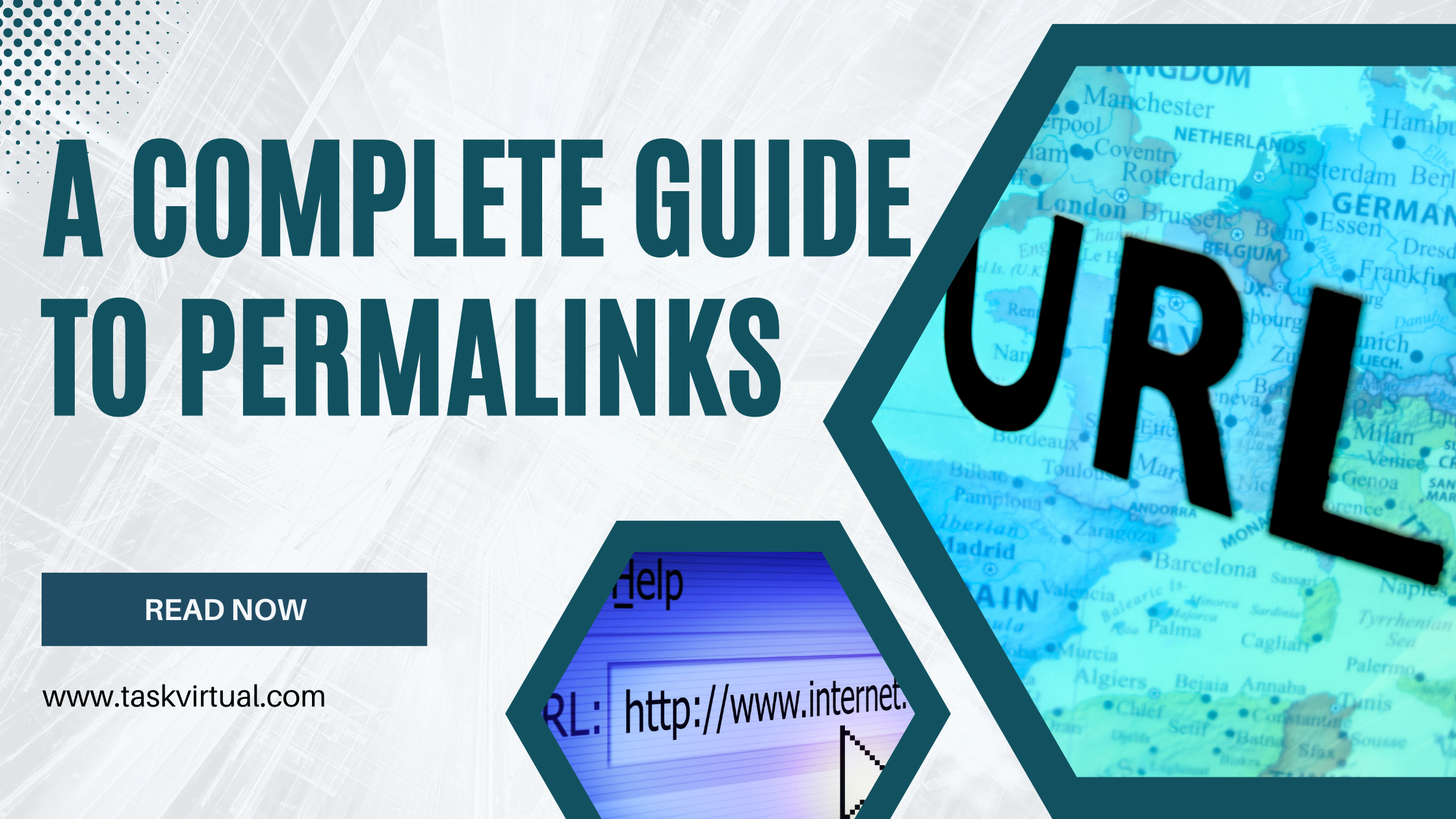
A Complete Guide to Permalinks: Optimize Your URL Structure
A permalink, or permanent link, is the complete URL of a webpage, representing its address on the internet. Optimizing permalinks is essential for search engine optimization (SEO), usability, and a professional online presence. Studies reveal that shorter, cleaner URLs can improve click-through rates by 39%. This guide covers everything you need to know about permalinks and how to optimize them effectively.
What is a Permalink?
A permalink is the full web address of a specific page or post, including the domain name and slug. For example, in the URL https://example.com/blog/permalink-guide, the permalink is the entire string. Permalinks are used to link directly to specific content on a website, making them crucial for navigation and sharing.
Why Permalink is Important?
Permalink plays a vital role in the success of a website by contributing to SEO, user experience, and brand consistency:
1. Boost SEO Rankings
Search engines use permalink to understand page content. URLs with relevant keywords rank higher, increasing organic traffic.
2. Improve Click-Through Rates
Clear and descriptive permalinks encourage users to click on links, improving engagement by 25%.
3. Enhance User Experience
Readable and concise permalinks make it easier for visitors to navigate and share content, leading to better retention.
4. Simplify Content Organization
Well-structured permalinks help organize your site, making content easier to find for both users and search engines.
Types of Permalink

Understanding the different types of permalinks can help you choose the best structure for your site:
1. Default Permalinks
Automatically generated URLs with unique IDs, e.g., https://example.com/?p=123. These are not user-friendly or optimized for SEO.
2. Pretty Permalinks
Readable and SEO-friendly URLs, e.g., https://example.com/blog/seo-tips. These are highly recommended for modern websites.
3. Numeric Permalinks
URLs that include numbers, e.g., https://example.com/archives/2023. While organized, they lack keyword relevance.
4. Custom Permalinks
Tailored URLs that include specific keywords or structures to meet branding and SEO needs.
How to Optimize Your Permalinks

Follow these best practices to create SEO-friendly permalinks:
1. Use Relevant Keywords
Include primary keywords in your permalinks to improve SEO visibility.
2. Keep It Short and Simple
Avoid unnecessary words or characters. For example, use /seo-tips instead of /the-best-seo-tips-for-2025.
3. Avoid Special Characters
Stick to hyphens to separate words, as underscores and special characters can affect readability and indexing.
4. Make It Descriptive
Your permalink should give users an idea of the page’s content before they click on it.
5. Use HTTPS
Ensure your permalink starts with HTTPS to improve security and trust.
Common Mistakes to Avoid
When setting up permalinks, avoid these pitfalls:
- Using Default Permalink: These lack context and can hurt SEO.
- Keyword Stuffing: Overloading URLs with keywords can make them look spammy.
- Changing Permalinks Frequently: Frequent changes can break links and confuse users.
Top Tools for Permalink Optimization
Use these tools to manage and optimize your permalinks effectively:
- Yoast SEO: Helps you create SEO-friendly permalinks and analyze their performance.
- Rank Math: Offers advanced permalink customization options for WordPress users.
- Pretty Links: Simplifies link management and tracks clicks for improved analysis.
- Ahrefs: Identifies broken links and provides insights to enhance permalink strategies.
- SEMrush: Analyzes permalink effectiveness and provides suggestions for improvement.
Why Choose TaskVirtual for Permalink Management?
TaskVirtual specializes in optimizing permalink structures to enhance SEO and user experience. Here’s why businesses trust us:
- Custom permalink strategies tailored to your website goals.
- Expert guidance on SEO-friendly URL structures.
- Affordable pricing starting at $3.12 / hour to $14.99 / hour, ensuring value for money.
- 364 positive reviews on esteemed VA reviewing platforms, which amounted to a 4.7-star rating
Conclusion
Permalink is a critical aspect of any website’s structure, directly impacting SEO, user experience, and content organization. By following best practices, avoiding common mistakes, and using advanced tools, you can create permalinks that drive traffic and engagement. Partner with TaskVirtual to ensure your permalink strategy is optimized for success in 2025.
FAQs
What is a permalink?
A permalink is the full URL of a webpage that serves as its permanent address on the internet.
Why are permalinks important for SEO?
SEO-friendly permalinks improve rankings by helping search engines and users understand page content.
How do I create a good permalink?
Use relevant keywords, keep it concise, and avoid special characters.
Can I change a permalink after publishing?
While possible, it’s not recommended as it can break links and affect SEO.
Why choose TaskVirtual for permalink optimization?
TaskVirtual offers tailored solutions to enhance your permalink strategy and improve website performance.






